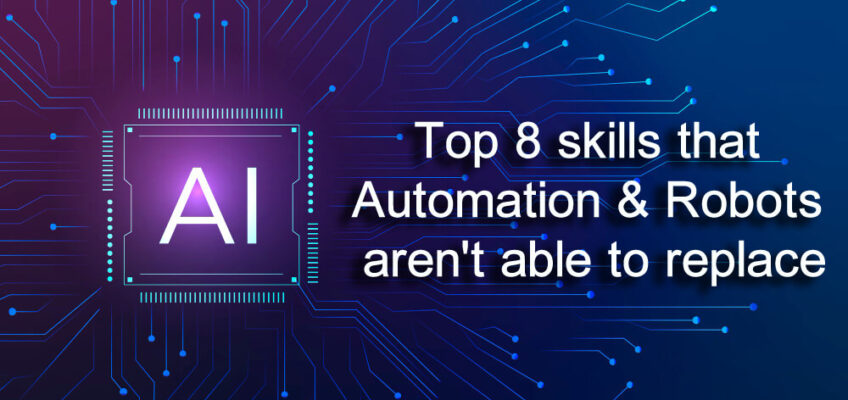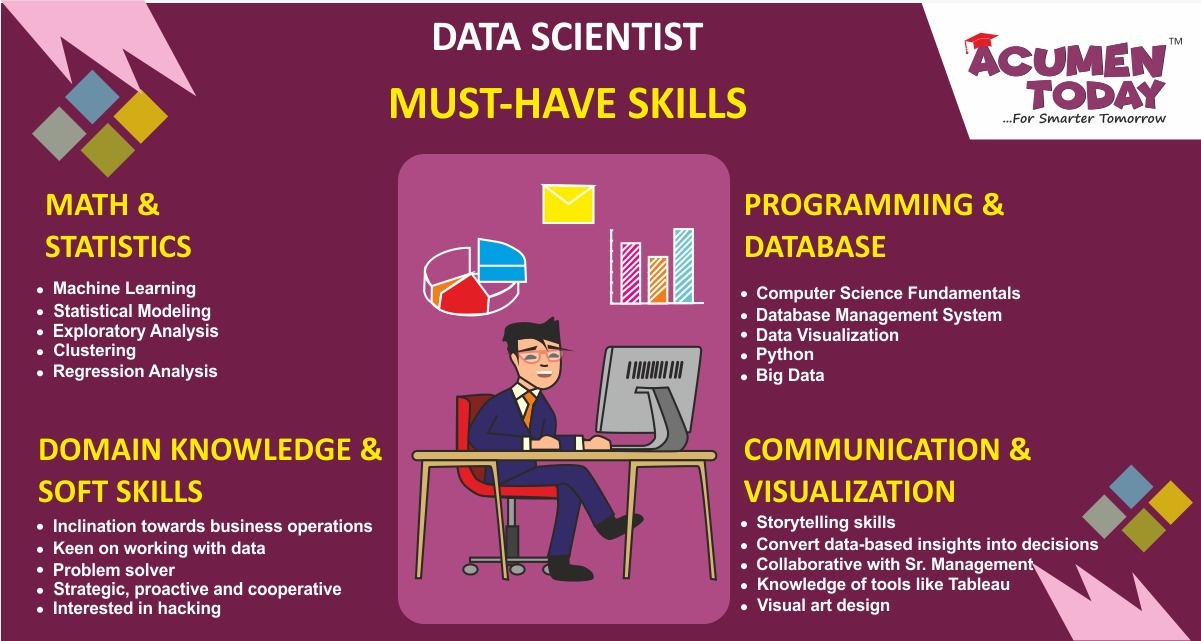
Top eight skills that automation and robots aren’t able to replace
- admin
- June 4, 2022
Top eight skills that automation and robots aren’t able to replace
As per McKinsey Global Institute’s report on skill shift due to automation and the future of the workforce; https://www.mckinsey.com/featured-insights/future-of-work/skill-shift-automation-and-the-future-of-the-workforce Demand for technological, social and emotional, and higher cognitive skills will rise by the year 2030. even as the demand for the physical and manual skills, will fall. Automation and AI technologies will force and accelerate the shift in skills that the future workforce will need.
According to The Future of Jobs Report 2020 of The World Economic Forum (WEF), https://www.weforum.org/reports/the-future-of-jobs-report-2020/digest Skills gaps continue to be high as in-demand skills across jobs change in the next five years. The top skills and skill groups that employers see as rising in prominence in the lead up to 2025 include groups such as critical thinking and analysis as well as problem-solving, and skills in self-management such as active learning, resilience, stress tolerance and flexibility.
Increasing technological advancements and faster adoption of the technology quartet of Internet of Things (IoT), Data Science, Artificial Intelligence, and Machine Learning have made it even more crucial for workers to update their skillsets in order to be relevant, competitive, employable, and marketable in the job market in the coming future.
Automation and robots will not eliminate jobs, rather, they’ll alter them. Although certain tasks which include boring and repetitive tasks, such as data entry, are getting automated the interpersonal skills can’t be replaced.
To elaborate, the following are eight skills robotics and automation cannot replace:

1. Critical Thinking
There’s no dearth of information or data in this information ear, but having personnel who are able to discern whether the available and accessible data is trustworthy in the plethora of false information is crucial for the success of any business.
Employers will look for people who are not only open-minded but also capable of discerning the authenticity of the information we receive each day in a world filled with deep lies, hype, rumors, propaganda, hysteria and sheer publicity.
If you are able to think in a critical manner, you’re more than just being optimistic, but it allows you to objectively evaluate the material, decide if it’s trustworthy, and decide whether it’s appropriate to be trusted by a business and by the consumers alike.
2. Creativity
Humans have always been superior in the ability to think more creatively than machines, regardless of the number of machines. Businesses still require individuals who are creative, who can envision the possibilities of tomorrow and imagine the future.
There are many opportunities to use AI to increase workplace creativity. Therefore, it’s vital to be open to the new technologies that enhance and create innovation, allowing companies to develop and innovate.
3. Collaboration and Teamwork
Effective collaboration skills are essential for companies hiring talent for the Fourth Industrial Revolution (Industry 4.0), and the skills required are unique to humankind.
Every business needs employees who collaborate well with each other to collaborate efficiently, as well as aid in the overall expansion.
This is especially true when the geographical boundaries have been blurred by technology and connecting with each other is a child’s play! Connecting to collaborate and collaborating to create and innovate is the new norm and one has to be aware and sensitive about the cultural, social, geopolitical and global sensitivities.
One needs to be a team player and engage with the relevant stakeholders across the globe to be effective and efficient in collectively solving the problems/challenges at hand.
4. Skills for Interpersonal Communication
As more and more machines come to the fore to be used for mundane and repetitive tasks and take a leap beyond ordinary and the routine through machine learning and artificial intelligence; the importance of interpersonal communication becomes paramount.
Capabilities of active, effective listening and effective communication are improving their capabilities, their algorithms will only take them so far. The ability to effectively communicate using a range of interpersonal skills is a uniquely human domain.
5. Empathy
People who have emotional intelligence, the capacity to manage, recognize and express their own and understand others’ emotions, are most likely unable to deal with and will be uncomfortable with machines.
The growing use of mobile and social media has changed the way we interact with each other every day Some claim that our obsession with technology has increased our emotional intelligence and empathy. Employees with high EQ are also more highly skilled when it comes to managing people.
The EQ skills are beneficial for as long as there are people working in the workplace as they impact every discussion that we engage in.
6. Flexibility and adaptability
The lifespan of any skill decreases constantly because the world is constantly changing. What worked in the past may not be the best strategy for the future, so having the ability to learn and reskill in your field is crucial.
It’s also essential to maintain mental flexibility and to be open to new methods and ideas to do things.
7. Moral Awareness
A myriad of ethical issues and challenges arise from digital technology as well as technological advancements that are part of the Fourth Industrial Revolution, which need to be addressed effectively. Management is currently far beyond the capabilities of machines. Humans are capable of tackling and addressing ethical concerns that are being raised by artificial technology and genomics.
8. Leadership Skills
Leadership skills are essential for everyone who makes decisions or supervises work groups in the workplace of today not only those who are at the top of the corporate ladder.